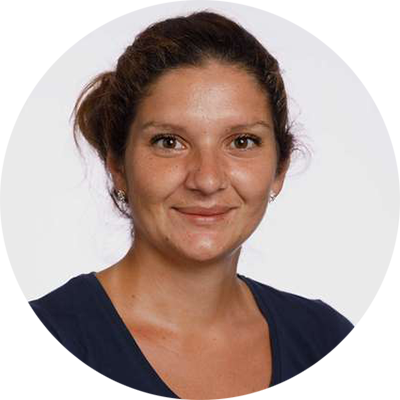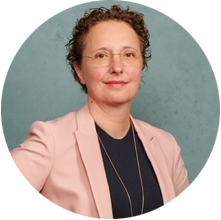speakers Tuesday 11 FEbruary

Miikka Vikkula
Professor of Human Genetics and Co-Director at
de Duve Institute, University of Louvain (UCLouvain), Brussels, Belgium
Miikka Vikkula obtained the M.D. degree at the University of Helsinki in 1992 and Ph.D. in molecular genetics, in 1993. He was a Research Associate at Harvard Medical School 1993-1997, during which time he became interested in vascular and lymphatic anomalies. With his wife, Prof Laurence M. Boon, Plastic Surgeon, Co-ordinator of the Vascular Anomaly Center, Brussels, the couple discovered the gene for familial venous malformation in 1996, and since then many others. They settled in Brussels in 1997, where Dr Vikkula developed his own laboratory. He obtained a thèse d’aggrégation / “docentship PhD” in 2000 from UCLouvain, and was nominated Assistant Professor at the Faculty of Medicine. He is a member of the Directorate of the de Duve Institute since 2004, and a full professor of Human Genetics since 2013. He has received numerous honours and awards, including the Inbev-Baillet Latour Clinical Prize in 2013, and the first Belgian Generet Award for rare disease research 2019. He is a Member of the Royal Belgian Academy of Medecine since 2012. Prof Vikkula’s research led to the identification of first somatic mutations as explanation for sporadically occurring vascular anomalies, generation of first ever animal model for vascular malformations, and proof of concept treatment with small molecular inhibitors. Clinical trials are now being conducted with various molecules in various countries.

Ralitsa Madsen
Ralitsa Madsen completed a Wellcome Trust PhD Programme in Metabolic and Cardiovascular Disease (2014-2018) at the Institute of Metabolic Science, University of Cambridge, working with Prof Robert Semple. Here, she discovered allele dose-dependent effects on stemness of the cancer hotspot variant PIK3CAH1047R. This led to her overarching hypothesis that quantitative PI3K signalling thresholds determine the pathophysiological consequences of PIK3CA mutations in human diseases such as cancer and PIK3CA-related overgrowth spectrum (PROS). This has shaped Ralitsa’s overall research career to date, with a strong emphasis on bridging the gap between the biological and physical sciences in the context of PI3K signalling.
After a short postdoc in the Semple Lab at University of Edinburgh, Ralitsa joined the laboratory of Prof Bart Vanhaesebroeck at University College London Cancer Institute, where she initially contributed to the characterisation of the first small molecule PI3Ka activator. In December 2020, Ralitsa was awarded a Sir Henry Wellcome Postdoctoral Fellowship to study the systems biology of PI3K-dependent phenotypic plasticity. She has developed innovative quantitative pipelines for single-cell studies of PI3K signalling and demonstrated that oncogenic PIK3CA blurs growth factor signalling specificity in a highly context-dependent manner. In parallel, Ralitsa also worked with Prof Alex Toker at Beth Israel Deaconess Medical Center on understanding the quantitative signalling and phenotypic outputs that differentiate pharmacological AKT degradation from conventional AKT inhibition.
In May 2023, she established her independent research group at the MRC Protein Phosphorylation and Ubiquitylation Unit, University of Dundee.
Ralitsa is also a strong advocate for Open Research. She serves on the inaugural UK Committee on Research Integrity (https://ukcori.org/our-people/), representing the voice of early career researchers in efforts to champion research integrity and a positive research culture across nationally and internationally.

Susan Quaggin
Susan E. Quaggin, MD, FRCP(C), FASN, is a graduate of the University of Toronto where shecompleted her residency and served as chief medical resident for the University’s St. Michael’s Hospital. She completed her nephrology fellowship at the University of Toronto and Yale University, where she also completed research and post-doctoral training. Dr. Quaggin’s research focuses on fundamental processes needed to establishand maintaintheintegrity of the specialized vascular beds in the kidney and eye. To understand and identify new therapeutic targets, she’s worked to develop genetic mouse models that allow cell and time-specificmanipulation of functional genes. Translation of her group’s findings regarding the vasculature reveals pathogenic mechanismsand new therapeutictargets for a number of diseases, including diabetic kidney and eye disease, nephroticsyndrome, and glaucoma.
Currently she is the Irving S. Cutter professor of medicine at Northwestern Universitywhere she serves as the Chair of the Department of Medicine and the Director of the Feinberg Cardiovascular and Renal Research Institute. Dr. Quaggin was elected to theAmerican Society for Clinical Investigation in 2006, the Association of American Physicians in 2013, the National Academy of Medicine in 2019, the National Academy of Inventors in 2021, the American Academy of Arts & Sciences (2023), and served as President of theAmerican Society of Nephrology (2021,2022) and is serving as council member of the Association of American Physicians. She was co-recipient of the Lefoulon-Delalande Grand Prix in Cardiovascular Science (2023).

Maroeska te Loo
Maroeska te Loo is a pediatric hemato-oncologist and clinical pharmacologist with a special interest on vascular anomalies. Her research is focused on the possibility of medical treatment of vascular anomalies, the genetics and in line of her specialization the risk of developing or bleeding episodes. She has a broad clinical background in pediatric hematology and in conducting clinical trials. She was the principal investigator in the Netherlands of a nationwide study into the effect of low dose sirolimus in vascular malformations and has initiated different kind of studies to learn more in respect of the risk of development of thrombosis in venous malformations.